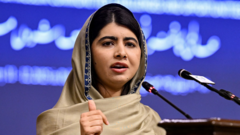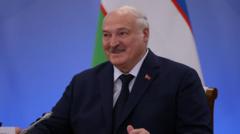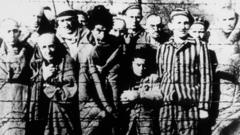Malala Yousafzai condemned the Taliban's repressive treatment of women and girls in Afghanistan during a summit in Pakistan, labeling their actions as gender apartheid and calling for a united response from Muslim leaders to uphold the rights of women and girls in education.
Malala Yousafzai Calls for Action Against Taliban's Gender Apartheid

Malala Yousafzai Calls for Action Against Taliban's Gender Apartheid
The Nobel laureate criticizes the Taliban's policies on women's rights at an international summit, urging Muslim leaders to take a stand.
Malala Yousafzai has passionately addressed the urgent need for Muslim leaders to confront the oppressive Taliban regime in Afghanistan, particularly regarding its harsh policies towards women and girls. Speaking at an international summit on girls' education hosted in Islamabad, she stated, "Simply put, the Taliban in Afghanistan do not see women as human beings."
The 27-year-old Nobel laureate emphasized that the Taliban's actions contradict the essence of Islam. Their restrictions, which prevent women and girls from pursuing education and employment, led her to declare that there is "nothing Islamic" about their governance.
Yousafzai, who survived a near-fatal shooting by a Taliban gunman in 2012 for advocating girls' education, shared her sentiments on returning to Pakistan, saying she felt "overwhelmed and happy" to be back in her homeland. Since the Taliban’s resurgence in 2021, they have imposed what Yousafzai labeled a “system of gender apartheid,” where women and girls face severe penalties for defying oppressive laws.
She shared her dismay over the Taliban's use of cultural and religious justifications for their violations of women's rights, pointing out that these actions go against the fundamental values of their faith. Despite a request for comments from the Taliban regarding her statements, their leaders did not respond, although they have previously maintained that they respect women's rights in line with their interpretation of Afghan culture and Islamic law.
The summit, organized by the Organization of Islamic Cooperation (OIC) along with the Pakistan government and the Muslim World League, saw the participation of ministers and scholars from Muslim-majority nations, advocating for girls' educational access. However, the Taliban government was notably absent from the discussions.
Since regaining control, the Taliban remains internationally unrecognized, with widespread criticism of their restrictive policies on women's rights. Afghanistan stands out as the only nation globally where females are barred from secondary and higher education, affecting over one million girls. Yousafzai lamented this situation, highlighting the Taliban's broken promises regarding educational access for girls and women.
Furthermore, she pointed out that systemic violence against women continues unabated, with recent bans preventing women from training in vital healthcare roles such as midwives and nurses. This ultimately closes off essential educational pathways for Afghan women.
Beyond Afghanistan, the Nobel laureate warned that crises in other regions like Gaza, Yemen, and Sudan threaten girls' rights to education. She encouraged attendees to address and condemn severe violations, stressing that in many crisis-stricken areas, the futures of countless girls are being stolen. Transitioning from an advocate to a critical voice, Malala Yousafzai continues to inspire hope and action toward safeguarding the right to education for girls worldwide.




















